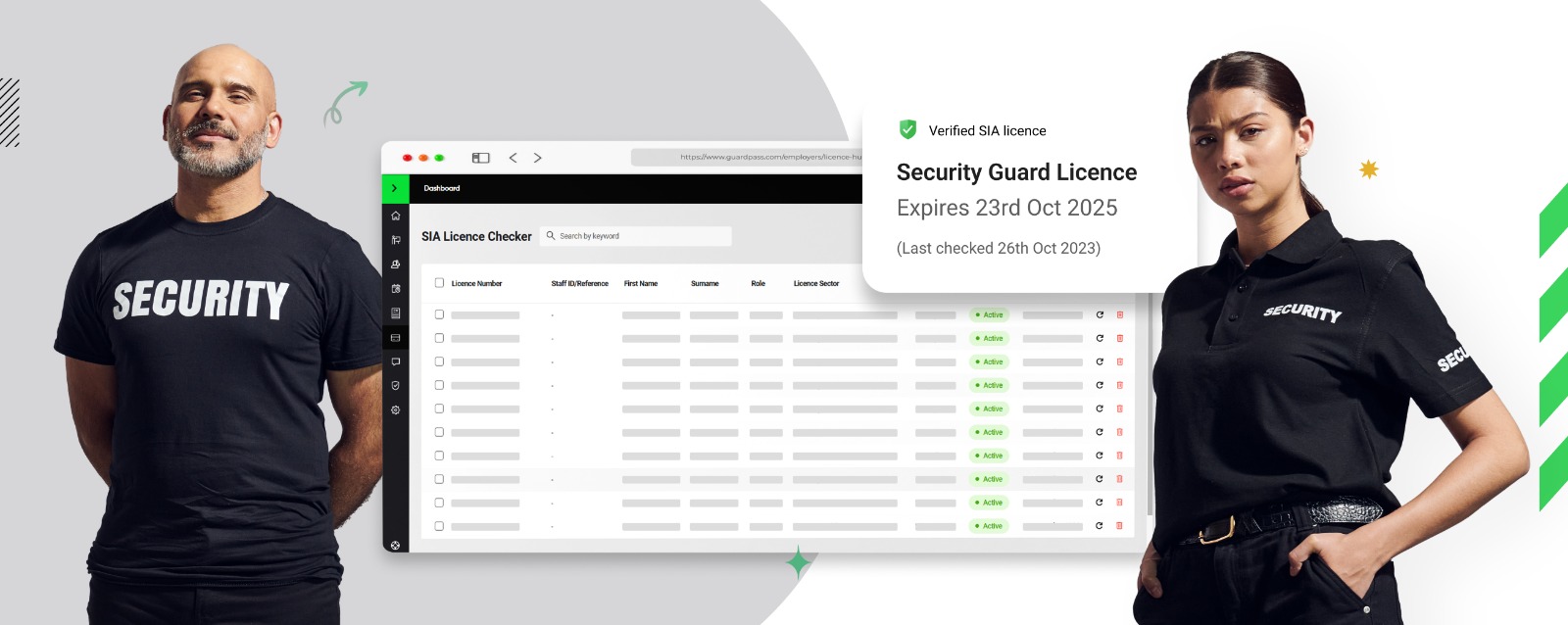The overwhelming majority of security company leaders would look at the title of this blog and think that there is absolutely nothing that they can personally do to increase standards across the industry. How wrong they are. In fact, with the Security Industry Authority unable to do much beyond the limited mandate provided by the Private Security Act 2001, and the “traditional stakeholders” that are repeatedly mentioned as the people that will band together and steer the industry towards a brighter future, consistently unable to achieve absolutely anything constructive, security companies and their staff are frankly the only hope.
Small steps in the right direction do not need to be costly or disruptive to perform, and eventually, if a majority of companies gave some time and thought to industry improvement, then all of those small steps would have taken us all a long way. So, what am I talking about?
Get your opinions heard.
Nobody can take notice if you don’t have something to say. So have your say. Get your views on the record and you’ll discover many like-minded industry leaders that feel the same and have similar issues. Get involved at SIA conferences. Lobby to join the skills board, and have some input into the direction of UK mandatory training. Join industry associations and trade bodies and put your views across on forums and in special interest groups. Do not let the same old traditional stakeholders steer the industry towards seas that only benefit their own business agendas.
Raise your own standards.
Improvement begins at home so start to put policies in place that will increase your standards of service. Don’t simply employ any officer that applies for a job, on the basis that they possess a “valid” SIA licence. Some, unfortunately, will not be fit to take any position of responsibility, are a liability to themselves and all those around them, and will do nothing but damage your corporate reputation. Incorporate a short basic test of knowledge into your recruitment procedure, or recruit from recognised sources of quality officers. Look at the GuardPass jobs board, and the jobseekers registered with it, for an example. https://www.guardpass.com/employers
When you need staff in a hurry, don’t turn to the absolute bargain bucket agencies. Although many are ACS-approved, this amounts to very little with ACS approval so easy to obtain. Consider the charge rates that they want from you. There is a point, below which you need to assume that their officers are not working legally. Cash in hand, no holiday pay, pay below legal minimums, and falsified vetting, are still rife amongst these organisations. Form agreements with other decent companies to support each other’s services. Recruit your own part-time bench team, or utilise officers on rest days. Not as quick and easy to do maybe, but safer than big clients discovering that the staff that you are deploying on their sites are incompetent, and do not belong anywhere near the security industry.
Educate your current and potential clients.
We all know that no matter how difficult recruitment may be, the majority of end users of guarding services are putting up immense resistance to increasing charge rates. It is a brave company that walk away from a potential contract because the charge rate was unacceptable. If you can, be brave.
Explain to clients that the service they want is not possible at the rate they want to pay. Make it crystal clear that companies prepared to work for peanuts will never reach the standards that they promise, and may well be operating illegally, underpaying security officers, or using dubious personnel.
Train and develop your people.
They will make your company look good, but better still, will make a positive impression on those that come in contact with them. A key part of dispelling public negative perceptions and gaining respect for security industry workers.
It may be a cliché, but it is 100% true. Look after your staff and they will look after your clients. If you can not pay more, then look at ways to increase the value and professionalism of your security officers. Provide specialist training for those who would benefit from it. Short online courses like Fire Marshal training, Customer Service skills, Incident Reporting, PACE and Common Law, Health and safety, and a great deal more, are cost-effective ways to increase the value of your security teams. A huge library of useful courses can be found at: https://www.get-licensed.co.uk/e-learning
There are other cheap and effective ways to increase the knowledge base of your staff. Perform one-to-one training on specific assignment-related issues. Produce and distribute useful aide memoire information cards on subjects that would be helpful for your officers to have at hand. I distributed a double-sided laminated pocket-sized information card containing information regarding how to deal with trespass and hostile reconnaissance at several high-profile sites. Go through the contents with each officer individually, or perform a toolbox talk on the contents if circumstances allow. Check that officers still have the card with them during site welfare visits.
Knowledge is power, and the more knowledgeable your staff, the more power they wield to generate respect.
Report issues to the SIA.
It may seem pointless or time-consuming, but the SIA does do its utmost to investigate allegations of misconduct, criminality, or security officers who have not reached the minimum standards required to work in the industry.
Keep reporting problems and encourage all of your management to do so, every time an issue is encountered.
It may take the SIA some time to act, but eventually, dodgy officers and their cowboy employers will be caught out and prosecuted. The fewer cowboy companies out there, the better the industry looks to all.
Accentuate the positive.
Did one of your security officers do something great while on duty? Shout about it on social media, and send in a press release to the local, and trade press. Do you have a great team on a particular site? Nominate them for one of several industry awards. Awards are a great and very public way to highlight superb performance and a huge pat on the back for your staff.
Get your people praised for doing good work, and have your company name associated with the excellence of these outstanding officers. Such public praise also encourages other hard-working officers to go the extra mile and hopefully achieve similar recognition.
Get accredited.
ACS approval is the absolute minimum accreditation requirement if you want to make a good impression. There are many standards and accreditations that cover a wide range of important and useful subjects. Rightly or wrongly, the longer your list of accreditations, the more professional or better performing your company will seem to be. Many contract tenders have simply been lost due to one company having a longer list of accreditations than another.
Be a positive force in the community.
Having a nominated charity each year, and organising money-raising events, is not only beneficial to the charity, it shows that your company cares. Get involved in local business groups and participate in any positive collective initiatives. If you have the budget, sponsor a local sports team, work with a local hospital to address a problem that you can solve, or encourage your staff to volunteer in any number of society-enhancing ways. The Special Constabulary, Territorial Army, hospital portering, charity organisations, or youth leadership schemes always appreciate help.
Whatever steps you choose to take, just remember that you can’t complain about the security industry, if your company does nothing to make it better.
Start taking those little steps, and ”walk the walk.”
Estimated reading time: 5 minutes



